Explore Uganda's Hidden Gem: Lake Mburo Safari Guide
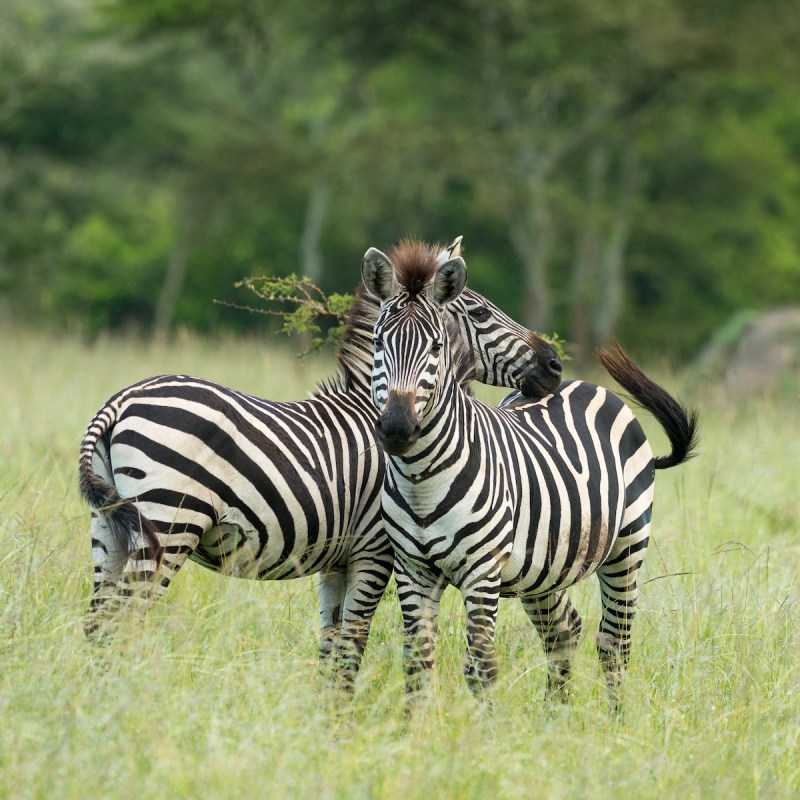
Introduction
Overview of Lake Mburo National Park
Lake Mburo National Park is a hidden gem nestled in the heart of Uganda. Known for its stunning landscapes and diverse wildlife, the park covers an area of approximately 370 square kilometres. It is the smallest national park in Uganda, but it is also one of the most unique and captivating.
The park is characterized by its expansive savannah grasslands, rolling hills, and numerous lakes and swamps. It is home to over 350 bird species, including the rare African finfoot and the shoebill stork. The park also boasts an impressive variety of wildlife, such as zebras, impalas, elands, buffaloes, and Uganda kobs.
Importance and significance of Lake Mburo as a hidden gem
Lake Mburo National Park holds immense importance due to its conservation efforts and ecological significance. It serves as a refuge for several endangered species, including the Rothschild's giraffe and the African leopard. The park also plays a crucial role in maintaining biodiversity and preserving the natural habitat of various plant and animal species.
One of the unique aspects of Lake Mburo National Park is its accessibility. Located just a few hours' drive from Kampala, the capital city of Uganda, it is a popular destination for both local and international tourists. Despite its proximity to the city, the park remains unspoiled and offers a truly immersive experience in the wilderness.
Moreover, Lake Mburo National Park is an ideal destination for eco-tourism and outdoor activities. Visitors can enjoy game drives, boat safaris, horseback riding, and walking safaris to explore the park and witness its abundant wildlife up close. The park also offers various accommodation options, from luxury lodges to budget-friendly campsites, ensuring that there is something for every type of traveller.
Lake Mburo National Park is a hidden gem that offers nature lovers and adventure enthusiasts a unique and captivating experience. Its stunning landscapes, diverse wildlife, and accessibility make it an ideal destination for those seeking an authentic African safari experience. Whether you are a birdwatcher, a wildlife enthusiast, or simply looking to connect with nature, Lake Mburo National Park is a must-visit destination in Uganda.
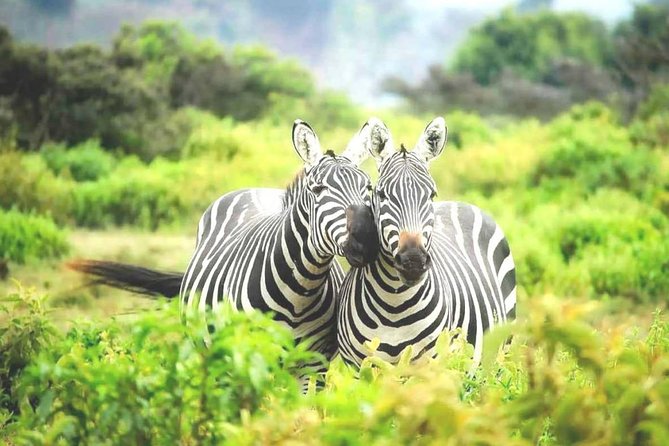
Getting to Lake Mburo National Park
Transportation options to Lake Mburo
If you're planning a trip to Lake Mburo National Park, there are a few transportation options available to you:
- By road: Lake Mburo National Park is conveniently located just a few hours' drive from Kampala, the capital city of Uganda. You can either hire a car and drive yourself or take a taxi or shuttle service.
- By air: If you prefer to fly, there is a small airfield near the park where chartered flights are available. This option allows you to enjoy aerial views of the stunning landscapes as you arrive at Lake Mburo National Park.
Recommended routes and travel tips
When travelling to Lake Mburo National Park, it is recommended to take the following routes:
| Route | Distance | Travel Time |
|---|---|---|
| Kampala - Masaka - Mbarara - Sanga Gate | 228 km | Approximately 3.5 hours |
| Kampala - Masaka - Lyantonde - Nshara Gate | 253 km | Approximately 4 hours |
Here are some travel tips to make your journey to Lake Mburo National Park more enjoyable:
- Plan your trip in advance and check the park's opening hours and entry fees.
- Carry a map or use GPS to navigate through the park.
- Wear comfortable clothing and sturdy shoes for outdoor activities.
- Bring insect repellent, sunscreen, and a hat to protect yourself from the sun and bugs.
- Respect the park's rules and regulations, and do not disturb or harm the wildlife.
With these transportation options and travel tips, you can easily reach Lake Mburo National Park and embark on an unforgettable adventure in the heart of Uganda's wilderness.
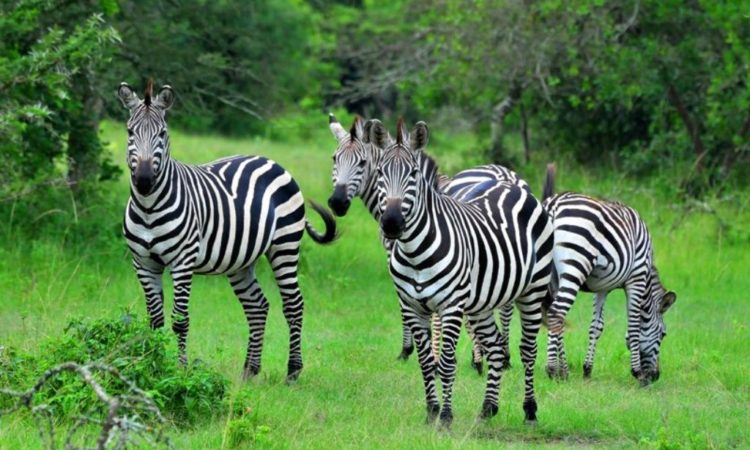
Wildlife and Natural Beauty of Lake Mburo
Fauna and flora species found in the park
When you visit Lake Mburo National Park, you will have the opportunity to encounter a variety of fascinating wildlife species. The park is home to over 350 bird species, including the rare African finfoot and the majestic shoebill stork. Keep your eyes peeled for other bird species, such as the African fish eagle, crested crane, and the marabou stork.
As for land animals, Lake Mburo National Park boasts an impressive array of mammal species. You may spot zebras, impalas, elands, and topis grazing peacefully in the grasslands. If you're lucky, you might even see the elusive leopard or hyena. The park is also known for its rich biodiversity, with over 68 different species of mammals calling it home.
The flora in Lake Mburo National Park is equally stunning. While exploring the savannahs and woodlands, you will come across various plant species, including acacia trees, fig-trees, and wild orchids. The park also features five lakes, which provide a diverse habitat for aquatic plants and support a thriving ecosystem.
Scenic landscapes and unique features of Lake Mburo
The beauty of Lake Mburo National Park lies not only in its wildlife but also in its breathtaking landscapes. As you explore the park, you will be captivated by its rolling hills, expansive grasslands, and sparkling lakes. The park's topography creates a picturesque backdrop for your wildlife encounters.
One of the unique features of Lake Mburo National Park is Lake Mburo itself. This freshwater lake spans an impressive 250 square kilometres and is home to a variety of aquatic species, including hippos and crocodiles. You can take a boat ride on the lake to get a closer look at these magnificent creatures and enjoy the tranquillity of the surroundings.
Another must-visit attraction in the park is the Kazuma Hill, which offers panoramic views of the entire park. From the hilltop, you can witness the vastness of Lake Mburo National Park and take in the beauty of the surrounding landscapes.
With its diverse wildlife and stunning natural landscapes, Lake Mburo National Park is a destination that promises a truly unforgettable experience.

Activities and Safari Experiences in Lake Mburo
Game drives and wildlife viewing opportunities
When you visit Lake Mburo National Park, you'll have the chance to embark on thrilling game drives and get up close and personal with the incredible wildlife. Hop into a safari vehicle and explore the park's vast grasslands, keeping your eyes peeled for zebras, impalas, elands, and topis grazing peacefully. If luck is on your side, you might even catch a glimpse of the elusive leopard or hyena. With over 68 different species of mammals calling the park home, each game drive is an opportunity for new discoveries and unforgettable sightings.
Boat safaris and birdwatching on Lake Mburo
No visit to Lake Mburo National Park is complete without a boat safari on the tranquil waters of Lake Mburo itself. Hop aboard a boat and navigate through the pristine lake, observing the diverse array of aquatic species, including hippos and crocodiles. As you glide along, keep your binoculars handy because Lake Mburo is a birdwatcher's paradise. Spot the rare African finfoot and majestic shoebill stork, along with other beautiful species like the African fish eagle, crested crane, and marabou stork. Get ready to capture breathtaking photos and create lasting memories of the park's abundant birdlife.
With a wide range of activities and safari experiences, Lake Mburo National Park offers something for every nature lover and adventure seeker. Whether you choose to embark on a game drive to spot the diverse mammal species or take a boat safari to explore the lake's rich birdlife, each experience will leave you in awe of the park's natural beauty and wildlife wonders.
Accommodation Options in Lake Mburo
Campsites and lodges within the national park
If you're looking to immerse yourself in nature and enjoy a truly authentic experience, camping in Lake Mburo National Park is a great option. The national park offers several campsites where you can set up your tent and spend the night under the starry African sky. Wake up to the sounds of nature and enjoy the tranquillity of the park.
For those who prefer more comfortable accommodations, there are also lodges within the national park that offer a range of amenities and services. From cosy cottages to luxury safari tents, these lodges provide a unique and immersive experience, allowing you to be surrounded by nature while still enjoying the comforts of modern amenities.
Nearby accommodation choices for visitors
If you prefer to stay outside the national park, there are several accommodation choices available in the nearby towns of Mbarara and Masaka. These towns offer a range of hotels and guesthouses catering to different budgets and preferences.
Whether you choose to stay within the national park or in the nearby towns, you'll find accommodation options that suit your needs. From camping under the stars to luxurious lodges, Lake Mburo has something for everyone.

Cultural Experiences and Community Tourism
Interaction with the local communities and cultural encounters
When visiting Lake Mburo, take the opportunity to immerse yourself in the local culture and interact with the friendly communities that call this area home. Engaging with the locals allows you to gain a deeper understanding of their way of life and experience firsthand the rich cultural heritage of the region.
You can participate in various activities such as traditional dance performances, storytelling sessions, and visits to local craft markets. These experiences will expose you to the traditions, customs, and folklore of the community and give you a chance to connect with the people on a personal level.
Additionally, you can opt for community-based tourism programs that offer homestays or cultural tours, where you can spend a day or more living with a local family and getting involved in their everyday activities. This offers a unique insight into their daily routines and provides an opportunity to learn traditional skills such as basket weaving or farming.
Eco-tourism initiatives and community projects in Lake Mburo
Lake Mburo National Park is committed to sustainable tourism practices and community development. The park actively supports several eco-tourism initiatives and community projects that aim to protect the environment and improve the living standards of the local people.
One such project is the Beekeeping Initiative, which promotes beekeeping as an alternative livelihood for the communities around the park. Visitors can learn about beekeeping techniques, taste delicious honey, and purchase locally-produced honey as a sustainable souvenir.
Another notable initiative is the Arts and Crafts Centre, where local artisans create beautiful handmade crafts. By supporting these artisans and purchasing their products, you contribute directly to the local economy and help preserve traditional craftsmanship.
These community projects not only provide economic opportunities for the locals but also create a sense of ownership and pride in the conservation efforts of Lake Mburo National Park.

Safety and Conservation Guidelines
Guidelines for visitors to ensure safety within Lake Mburo
When you visit Lake Mburo, your safety is of utmost importance. To ensure a smooth and enjoyable experience, here are some guidelines to follow:
- Listen to the instructions and guidance provided by your tour guide or park ranger.
- Stay on designated trails and paths during nature walks and game drives.
- Avoid sudden movements or loud noises that may startle the wildlife.
- Respect the animals' space and observe them from a safe distance.
- Do not feed or approach any animals, as this can be dangerous for both you and the wildlife.
- Keep a safe distance from hippos and crocodiles when near the water bodies.
- Follow the rules and regulations set by the park regarding camping, fishing, and picnicking.
- Be cautious and aware of your surroundings at all times.
Conservation efforts and responsible tourism practices
Lake Mburo National Park is dedicated to conserving its unique ecosystem and promoting responsible tourism. As a visitor, you can contribute to these efforts by following these guidelines:
- Do not litter and dispose of waste properly in designated bins.
- Minimize your ecological footprint by using reusable items and avoiding single-use plastics.
- Support local conservation projects and community initiatives by purchasing sustainable souvenirs and products.
- Respect the park's flora and fauna by refraining from picking plants or disturbing the habitat.
- Observe the park's rules and regulations regarding noise pollution and vehicle speed limits.
- Do not engage in activities that harm the environment or the wildlife.
- Educate yourself about the importance of conservation and share your knowledge with others.
- Spread the message of responsible tourism and encourage others to visit Lake Mburo National Park.
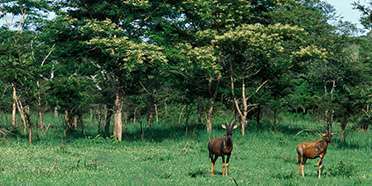
Best Time to Visit Lake Mburo National Park
Climate and weather considerations
When planning your visit to Lake Mburo National Park, it is important to consider the climate and weather conditions. The park experiences a tropical climate with two main seasons:
- Dry season (June to August and December to February): This is the best time to visit as the weather is sunny and the wildlife is more easily spotted. The temperatures are warm during the day and cool at night.
- Rainy season (March to May and September to November): During this time, the park receives heavy rainfall, which can make wildlife viewing more challenging. However, the landscape becomes lush and green, offering a unique and picturesque experience.
Peak seasons and wildlife migration patterns
Lake Mburo National Park is known for its diverse wildlife population, including zebras, impalas, buffalos, and hippos. To witness the park's wildlife in abundance, it is recommended to visit during the dry season when animals gather around water sources.
The park also offers an opportunity to witness the spectacular migratory patterns of zebras and impalas. During these migrations, which usually occur between June and August, the animals move in large herds, creating a breathtaking sight.
If you are interested in bird watching, the best time to visit is during the rainy season when migratory birds flock to the park. This is a great opportunity to spot a wide variety of bird species in their natural habitat.
Whether you visit during the dry season or the rainy season, Lake Mburo National Park offers a unique and unforgettable experience. Choose the time that suits your preferences, and come prepared to appreciate the park's beauty and wildlife.
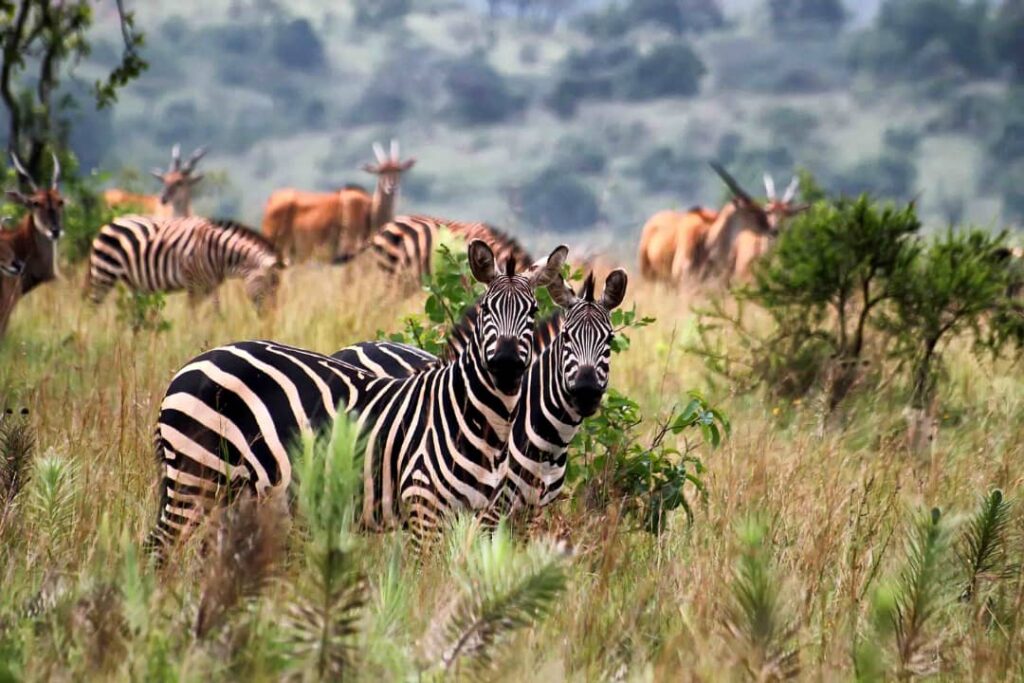
Tips for planning a memorable safari in Lake Mburo National Park
To make the most of your safari in Lake Mburo National Park, here are some tips to keep in mind:
- Plan your visit during the dry season to increase your chances of spotting wildlife easily.
- Pack appropriate clothing for both warm days and cool nights during the dry season.
- If you enjoy bird watching, bring along a pair of binoculars and visit during the rainy season when migratory birds are present.
- Consider booking a guided tour or hiring a knowledgeable wildlife guide to enhance your experience and learn more about the park's ecosystem.
- Don't forget your camera and extra batteries to capture those amazing wildlife and landscape shots.
- Respect the park's rules and guidelines, such as not littering and keeping a safe distance from the animals.
- Enjoy the beauty of Lake Mburo by taking a boat tour or going on a walking safari to explore the park from a different perspective.
By planning ahead and following these tips, you're sure to have a memorable safari experience in Lake Mburo National Park.
